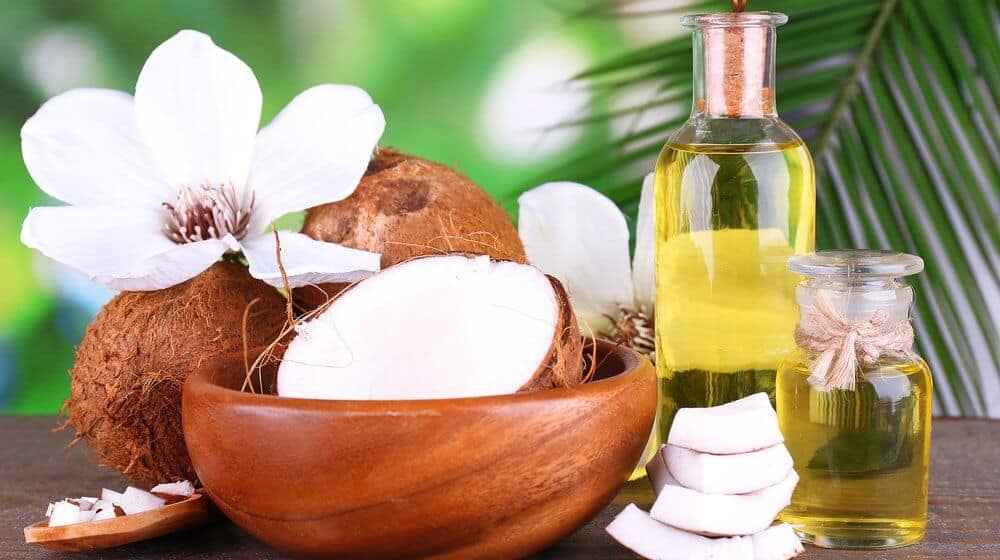
Just about every publication and website tout the benefits of using coconut oil for cooking, home remedies, and beauty regimes. This is all well and good for most people, but what if you have an allergy to coconut oil or just aren’t fond of it? You may be wondering what you can use as a substitute for coconut oil. The good news for you is that there are several oils that you can choose from that offer the same benefits as coconut oil, and we’ll give you the basics on each one to help you find your new go-to oil.
Argan Oil
You may have heard about argan oil as an ingredient in some cosmetic formulations like shampoo, and the reason is that this oil offers some great beauty benefits. This oil is rich in essential fatty acids and vitamin E. Both of these properties are what allows this oil to easily absorb into your skin to get a refreshed look. This oil works for all skin types and is a go-to oil for dealing with cuticles and split ends.
Olive Oil
Olive oil is beneficial for both consumption and beauty. This oil offers antioxidants, vitamins, and minerals that are good for you inside and out. This oil works well as a hair treatment as it helps to deep condition your hair and is useful for dealing with dandruff thanks to how well it can moisturize your scalp.
Sweet Almond Oil
Sweet almond oil is another powerhouse oil that provides excellent moisturizing benefits. It’s packed with vitamins A, B, D, and E as well as antioxidants and fatty acids. One additional benefit that can be found from this particular oil is that it doesn’t clog pores, so it can be used directly on your face for the nourishing capabilities that it offers.
Grapeseed Oil
Grapeseed oil is another popular cooking oil that can pull double duty in the kitchen and the bathroom. This particular oil is excellent for using as an astringent. It has several fatty acids, such as Lauric, Oleic, Linoleic, Stearic, Myristic, and Palmitic. This oil works well on skin irritation and dryness. This is another oil that will keep your pores clear and won’t cause your skin to break-out. Some people use this as a base for creating their own lotion or use it as a conditioner.
Safflower Oil
Safflower oil is another oil that can be found in your cupboard but can pull its weight in protecting your skin. It creates a protective barrier on your skin that moisturizes it. This oil is good for smoothing the roughness of your skin, such as on calluses on your hands and feet. This works well for dryness and can help to soothe irritated skin.
Rose Hip Seed Oil
Rose hip seed oil comes from roses. It has antioxidant and anti-inflammatory properties. This is beneficial because it can help calm the skin when irritated or dry along with helping to protect the skin from things like pollution and being exposed to the sun. This oil can help to keep the skin from dehydrating as it has emollients that keep water in so that your skin is supple and hydrated. This also works well for hair.
Avocado Oil
Everybody loves to eat avocados, and many are starting to incorporate avocado oil into his or her daily recipes. This fantastic food is also great outside of the kitchen for your health and beauty routine. This contains amino acids, vitamins A, B, D, and E, and essential fatty acids that make it great to add to your diet, but also your hair routine. This makes an excellent massage oil, hair and scalp treatment, skin conditioner, and lotion. It works well for cracked and extremely dry skin. It does have a heavy texture.
Experiment
When trying a new oil out, it’s always good to experiment. You may find that you prefer the scent of one oil over another or prefer the feel of one over another. It may take some time to find the oil or combination of oils that work the best for you and your personal preferences, and that’s okay. You will find something that you prefer over coconut oil.
Conclusion
Coconut oil has a lot of benefits, and you may feel left out that you couldn’t take part in this trend for one reason or another. Thankfully, there are other oils that you can explore to replace coconut oil as a substitute. You may want to try several of these oils until you find that perfect one that works for you whether it’s for part of your beauty routine, home remedy, or recipes.
Have you turned to another oil rather than coconut as your go-to oil? Share your stories with other readers to help them in finding the perfect coconut oil substitute. Do you have any questions on these oils? We want to hear from you.
